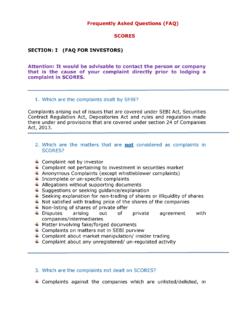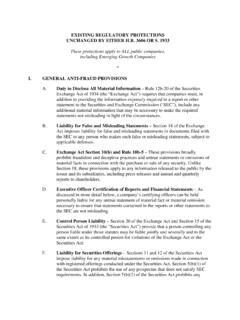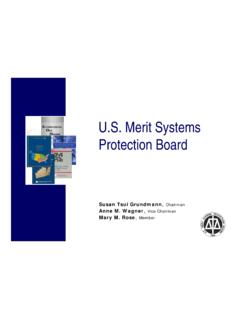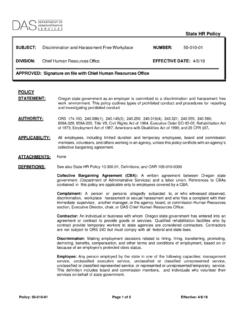Transcription of OFFICE OF DEVELOPMENTAL PROGRAMS BULLETIN
1 OFFICE OF DEVELOPMENTAL PROGRAMS BULLETIN ISSUE DATE March 1, 2021 EFFECTIVE DATE July 1, 2021 NUMBER 00-21-02 SUBJECT Incident Management BY Kristin Ahrens, Deputy Secretary for DEVELOPMENTAL PROGRAMS COMMENTS AND QUESTIONS REGARDING THIS BULLETIN SHOULD BE DIRECTED TO: The appropriate toll free number for your provider type Visit the OFFICE of DEVELOPMENTAL PROGRAMS Web site at SCOPE: Individuals and Families Administrative Entities (AE) Agency with Choice Financial Management Services Organizations Base-Funded Service Providers County Intellectual Disability (ID) PROGRAMS Common-Law Employers in the Vendor Fiscal/Employer Agent Model Providers licensed pursuant to 55 Pa. Code Chapters 2380, 2390, 6400 and 6500 Providers of Adult Community Autism Program (ACAP) services Providers of Consolidated, Person/Family Directed Support (P/FDS), Community Living, and Adult Autism Waivers services Providers of Targeted Support Management (TSM) Supports Coordination Organizations (SCO) PURPOSE: The purpose of this BULLETIN is to specify the operating procedures and directions for the incident management process, which is a subset of a larger risk management process, and an essential component of a comprehensive quality management process.
2 The incident management processes in this BULLETIN include uniform practices for: Building organizational policies and structures to support incident management. Taking timely and appropriate action in response to incidents. Reporting of incidents. Investigation of incidents. Taking corrective action in response to incidents that both mitigate risk(s) and decrease the chance of a future occurrence of a similar incident. 2 Implementing quality management, risk management, and incident management processes for the analysis and interpretation of individual and aggregate incident data. BACKGROUND: The primary goal of the OFFICE of DEVELOPMENTAL PROGRAMS (ODP) incident management system is to ensure that when an incident occurs or is suspected or alleged to have occurred, the response to the incident protects and promotes the health, safety, and rights of the individual. In accordance with ODP s guiding principles, Everyday Lives, Values in Action, individuals and their families identified areas of importance to increasing the overall quality of their lives.
3 The guiding principles include self-direction, choice and control along with promoting health, wellness, and safety. When all stakeholders report incidents, investigate incidents, and take actions based on these reports to prevent recurrence of a similar incident, the guiding principles can be put into practice. DISCUSSION: Individuals who receive services through PROGRAMS administered by ODP have the right to be treated with dignity and respect and to receive high quality services in safe environments. High quality services include services where written, oral and other forms of communication with the individual and persons designated by the individual occur in a language and through a means of communication understood by the individual and any persons designated by the individual (55 Pa. Code ). This BULLETIN provides instruction on implementing an incident management system that: Reflects person-centered practices; Begins with recognition, reporting and response; Promotes prevention of incident recurrence; and Emphasizes agency-wide analysis of incidents to implement processes that promote system-wide changes for quality improvement.
4 Any person, including the victim, who reports an incident or cooperates with an investigation should be free from intimidation and discriminatory, retaliatory, or disciplinary actions. Individuals who report an incident or cooperate with an investigation have rights under the whistleblower Law (43 1421 1428) and the Older Adults Protective Services Act (35 ). I. Definitions Administrative Review The final step of the investigation process that includes reviewing the competency and quality of an investigation for speed, objectivity, and thoroughness; weighing the evidence and making an investigation determination; determining preventative and additional corrective action plans; and completing the Administrative Review section of the Certified Investigator Report. Bureau of Support for Autism and Special Populations (BSASP) A bureau within ODP that administers two PROGRAMS for adults living with autism spectrum disorders (ASD) the Adult Autism Waiver and ACAP.
5 3 Corrective Action Action implemented to increase protections to individuals from similar future incidents. Corrective action can be implemented for a single individual or related to an organizational change to prevent similar incidents to all individuals. Critical Incident A type of incident that has been determined to be a sufficiently serious indicator of risk that it requires an investigation by a Department Certified Investigator. Incident An event with potential to adversely impact an individual s health, safety, or rights. Incident Management - The response to an event, intended to ensure the adequate, appropriate, and effective protection and promotion of the health, safety, and rights of the individual. Individual A person registered with a County Intellectual Disability (ID) Program; enrolled in a Waiver program (Consolidated, Community Living, P/FDS or Adult Autism); enrolled in ACAP; or who receives base-funded services, TSM or services from facilities that must comply with 55 Pa.
6 Code Chapters 2380, 2390, 6400, or 6500. Individual Incident Report - A type of incident report entered in the electronic incident management system that exists to manage specific incident categories for one individual. Individual Support Plan (ISP) A coordinated and integrated description of person-centered activities, including services and supports for an individual. Initial Management Review A review to determine if appropriate actions to protect the individual s health, safety, and rights have occurred, which is conducted by County ID Program/AE staff within 24 hours of the submission of the first section of the incident report. Investigation The process of identifying, collecting, and assessing evidence from a reportable incident in a systemic manner by a person certified by the Department s approved Certified Investigator Training Program. Investigation Determination A finding of confirmed, not confirmed, or inconclusive made during the administrative review stage of an investigation.
7 Management Review A review of the entire incident report in the Department s information management system, that results in a status of approved or not approved. Oversight Entity An entity with the responsibility and authority to monitor the functions of another entity as they relate to incident management and the health and welfare of individuals. Oversight entities include, but are not limited to: ODP, SCOs, County ID PROGRAMS /AEs, and entities that have the authority to license providers. Provider The person, entity, or agency that is contracted or authorized to deliver the service to the individual. 4 Provider Operated Setting - Provider-owned or controlled home and community-based setting. Risk Mitigation An approach to minimize the severity of risk and to reduce the likelihood of occurrence or recurrence of an adverse event. Service (paid caregiver or agency) An activity, assistance, or product provided to an individual that is paid through a program administered by ODP (Consolidated, Community Living, P/FDS or Adult Autism Waiver PROGRAMS ; State plan; base-funding; or ACAP).
8 The term includes supports coordination, TSM and vendor goods and services, as well as services provided through an organized health care delivery system, agency with choice or vendor fiscal/employer agent financial management services model. Site Incident Report A type of incident report in the electronic incident management system that is created when a service location or property is affected by incidents such as emergency closure, vandalism, or fire. Support (unpaid caregiver) An unpaid activity or assistance provided to an individual that is not planned or arranged by a provider. Supports Coordination Organization (SCO) An entity that delivers Supports Coordination (SC) services through the Consolidated, Community Living, P/FDS, and Adult Autism Waivers; ACAP; TSM; or base-funded SC. Target The person or entity who is alleged to have caused the incident to occur. Victim The individual to whom the incident occurred or is alleged to have occurred. Victim s Assistance PROGRAMS Resources available to victims of a crime to assist them medically, physically, emotionally, financially, and legally.
9 There are two main types of victim s assistance PROGRAMS : system and community-based organizations. II. Administrative Requirements Providers, SCOs, and County ID PROGRAMS /AEs should create an administrative structure that allows for the implementation of the requirements in this BULLETIN . If a provider, SCO, or County ID Program/AE delegates or purchases any function(s) of the incident management process, there must be a method to monitor the delegated or purchased function(s). The monitoring must be sufficient to determine if the entity completing the function(s) is compliant with ODP regulations, policies, and procedures as they relate to the delegated or purchased function(s). The monitoring of incident management functions should be completed on at least a quarterly basis and the results of the monitoring should be readily available in a written format. The provider, SCO, or County ID Program/AE must retain all responsibility for the quality, compliance, and completion of all incident management functions, even if the function(s) are delegated or purchased via a contract or agreement.
10 III. Policy, Procedure and Training Requirements 5 a. Providers and SCOs shall: Develop and implement written policies and procedures for incident management that: o Meet the requirements of all applicable laws, regulations, policies, and procedures related to incident management. o Support the collaboration with appropriate stakeholders to: mitigate individual risk(s); mitigate agency-wide risk(s); promote health, safety, and rights for all individuals; implement incident management, risk management, and quality management activities. o Require that the security of investigation files and evidence be maintained. o Ensure that person(s) designated by the individual listed in the ISP are notified about incident management activities as indicated by the individual. The ISP should also contain information about what incidents and circumstances the person(s) designated by the individual should be notified. For example, if the individual only wants the person(s) designated for certain types of incidents.

















